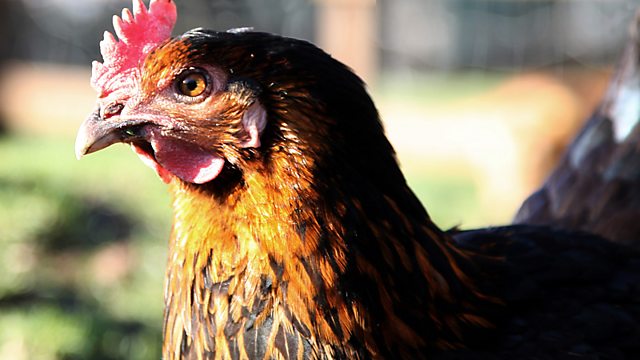
TB Restricted livestock markets, Sky lanterns, Turnip seed harvest, No-till study
A handful of cattle marts are offering TB-hit farmers a lifeline via Restriction Sales, where healthy cattle from closed herds are sold on to approved buyers for fattening.
Farming Today has been focusing on TB this week and its impacts on farmers and livestock. When an animal fails a TB test, all live cattle movements on or off the affected farm are banned. As most beef farmers rely on selling livestock to make a profit, the effects can be devastating for business. However a handful of cattle marts in England can offer TB-hit farmers a lifeline - running 'restricted sales', where healthy cattle from closed herds are sold to approved buyers for fattening. Vernon Harwood reports from the TB Restricted Auction at Frome Livestock Market in Somerset.
The NFU is raising concerns over the release of sky lanterns this summer: small paper lanterns over a wire or bamboo frame, with a small burner in the middle. When lit, the paper fills with hot air and floats off. It may look pretty but farmers say the lanterns pose a major risk to farmland and livestock - and are calling on councils to ban their release. Lawrence Matthews has a mixed arable, cattle and sheep farm in Surrey, and says the issue is a serious concern for him. Meanwhile Alan Brown is from Shine Up Fest, a company hoping to run festivals in the UK where attendees will release lanterns to "create a masterpiece of light". Anna Hill asked for his feedback on farmer Lawrence Matthews' take on sky lanterns.
Farmers across the country have been checking over their machinery this week, ready for harvest - but there is one place where the combine has already been out, for a unique crop. There are just a few acres in Lincolnshire where the only organic stubble turnip seed is grown, and it's now safely in storage. Anna Hill has been to meet the man who grows it, Nicholas Watts.
And a growing trend in farming is moving away from one of the great agricultural traditions of ploughing, in favour of a "no till" approach, which some claim can save money and is better for the environment. Now, an experiment in the Midlands is trying to unearth the science behind the no-till method - as David Gregory-Kumar reports.
Last on
Broadcast
- Wed 28 Jun 2017 05:45Βι¶ΉΤΌΕΔ Radio 4
Podcast
-
![]()
Farming Today
The latest news about food, farming and the countryside

